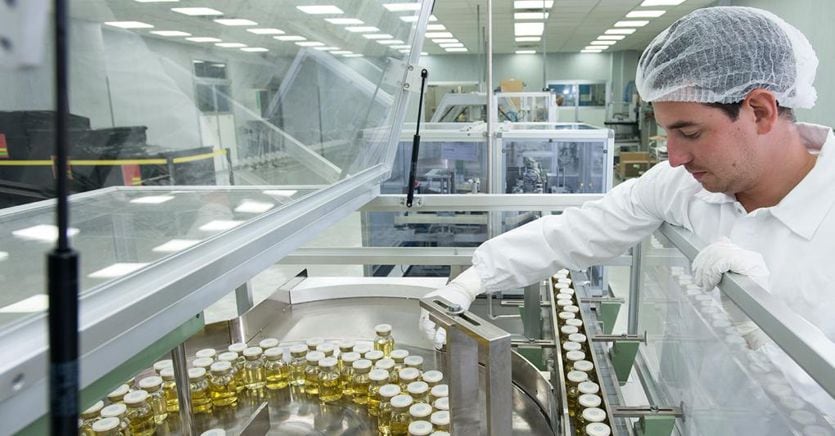Crushed by bureaucracy, short of funding and staff, struggling with privacy regulations that make data management almost impossible, struggling to recover from the delays accumulated for the implementation of the 2014 European Regulation on clinical trials. Here are the evils that risk making Italy lose the train of innovation in the biomedical field again. A game worth one trillion dollars, the ones that the large pharmaceutical multinationals have planned to invest between now and 2025. A dish of which, in these conditions, Italy risks being entitled to only the crumbs.
Italy lagging behind in Europe
The experts gathered in the conference on “Clinical research in Italy”, organized in Rome, at the headquarters of the ISS, by Fadoi, the scientific society of hospital internists, who took charge of the 70th % of Covid patients during the pandemic. The two and a half years of Covid have taught us how important it is to bring the efforts of both the public and the private sector together on clinical research. But in Italy the non-profit clinical trials in ten years, from 2009 to 2019, decreased by 51%. Too long bureaucracy times were and are a factor that limits Italy’s participation in clinical trials. To say it are the numbers, because if in our country 4.6 every 10 thousand inhabitants take place every year, in Germany there are 5.6, in Spain and France 6, in Great Britain 6.8, in Holland 16.7, for not to mention the Danish record set at 25.5. “A gap where it is mainly the patients who lose out, because where research is done, there is even better care”, explains President Fadoi, Dario Manfellotto. “In fact – he stresses – in countries where clinical trials are carried out, innovative drugs usually arrive first and their knowledge spreads more rapidly among doctors who can then use them at their best”.
The benefits of drug research
“The most penalized is then precisely the independent non-profit research, which in 2018 stood at 27.3% of the total number of trials conducted in Italy, the following year it contracted to 23.2%. A research in which, among other things, 90% of the investments that allow it to be carried out are supported by private individuals, ”he explains Gualberto Gussoni, scientific director of Fadoi. Little bad will be said, but this proportion raises some reflection given that independent studies respond to less stringent needs than those of the market and can lead to discoveries in areas that usually arouse less interest in private investors. “An advantage from a point of view assistance, but also economic view – he explains Francesco Dentali, Vice President Fadoi – every euro paid to the hospital or scientific institution for clinical trials by the profit promoters generates a net profit for the hospital of 0.5 euro and a saving for the NHS of about 2.5 euro thanks to the free supply of medicines ». Not to mention the fact that every year in Italy about 40 thousand patients suffering from serious pathologies, such as tumors, haematological and cardiovascular diseases, by participating in the trials can benefit even years in advance of innovative treatments.
Few funds and understaffed
But what are the obstacles and critical issues that will be at the center of a manifesto for the relaunch of clinical trials that Fadoi itself will shortly present to the ISS and other institutions? One of the first obstacles is the lack of resources. ” research is made up of numbers and we invest 750 million euros in clinical research (90% from the private sector), as much as the American federal state alone puts on the plate for oncology alone. For research in the field of health, Italy invests about 10% of its total expenditure in R&D, more or less as much as for space exploration », Gussoni recalls. Then there is the problem of the chronic shortage of medical and nursing staff, who, overburdened by care tasks, do not find time to devote themselves to clinical trials. Not to mention the professional figures dedicated to research still without a defined professional and economic classification, “so much so that some are classified as secretarial staff”, the research manager of Fadoi always remarks.
Bureaucracy and privacy requirements
There is also bureaucracy to crush research. In Italy, over the last eight years, around twenty regulatory measures have been piled up to regulate it, just to name the main ones. In Spain, a single 42-page decree regulated the entire sector. “The public-private relationship then struggles to take off due to an ideological resistance to conducting research in partnership and due to a regulatory cumbersome that makes it very difficult to exchange researchers and personnel , as it happens in Anglo-Saxon countries, ”he explains Andrea Fontanella, past president of Fadoi. In addition, the privacy regulations that make the management of clinical data a business are added to the whole. «Suffice it to say that for retrospective observational studies, in which medical record data are aggregated anonymously and therefore not recognizable, the Privacy Guarantor normally asks for the specific authorization of each patient. Maybe for years old data », explains Fontanella.
